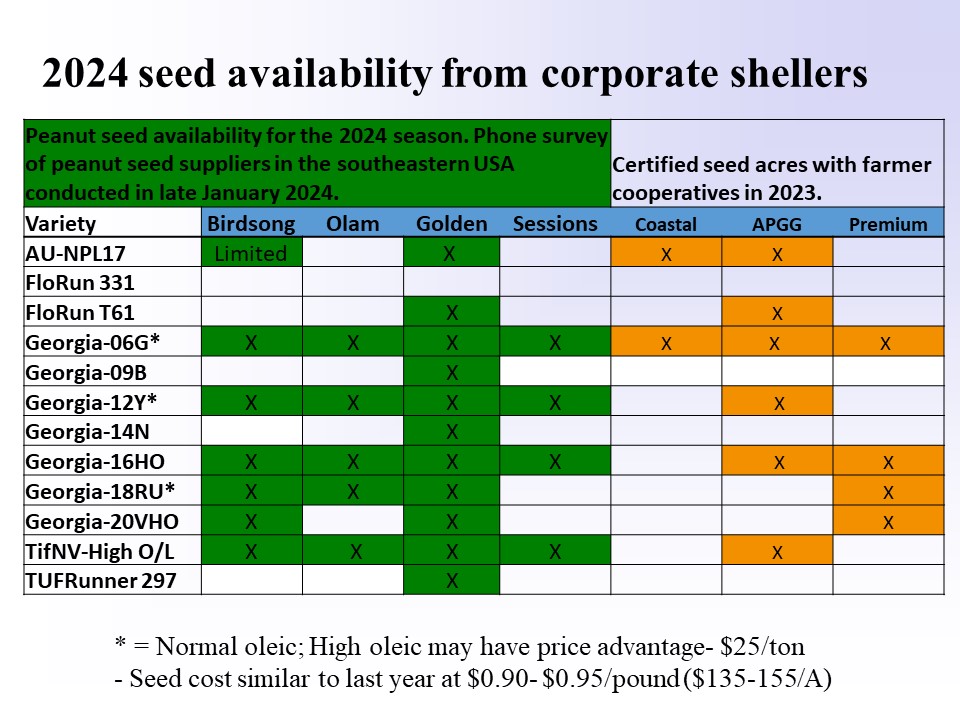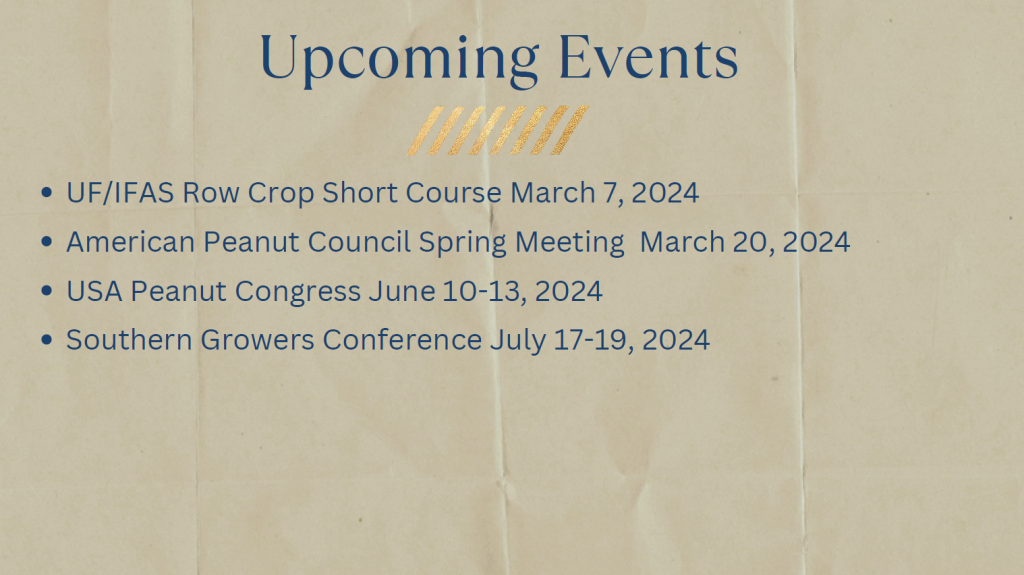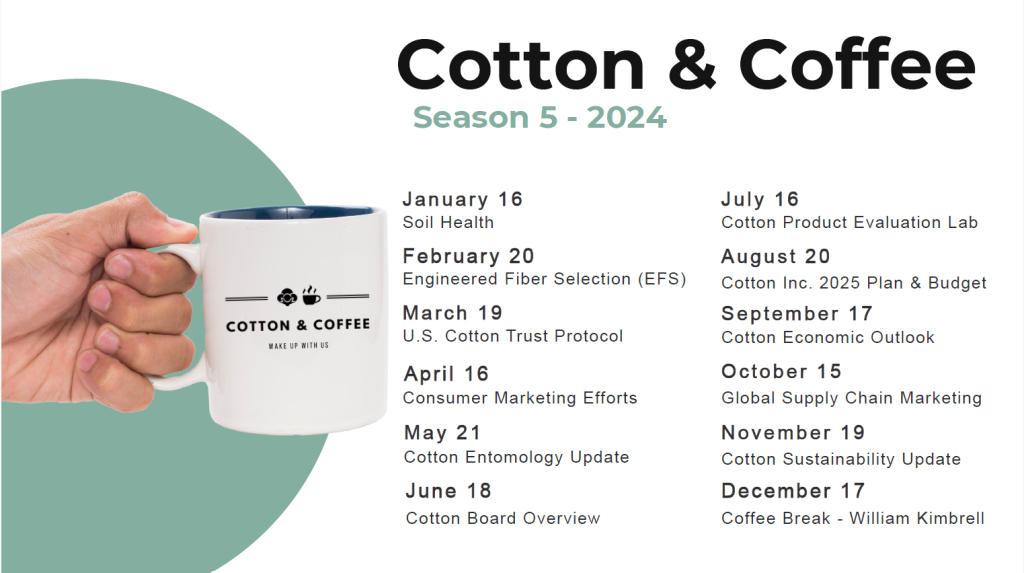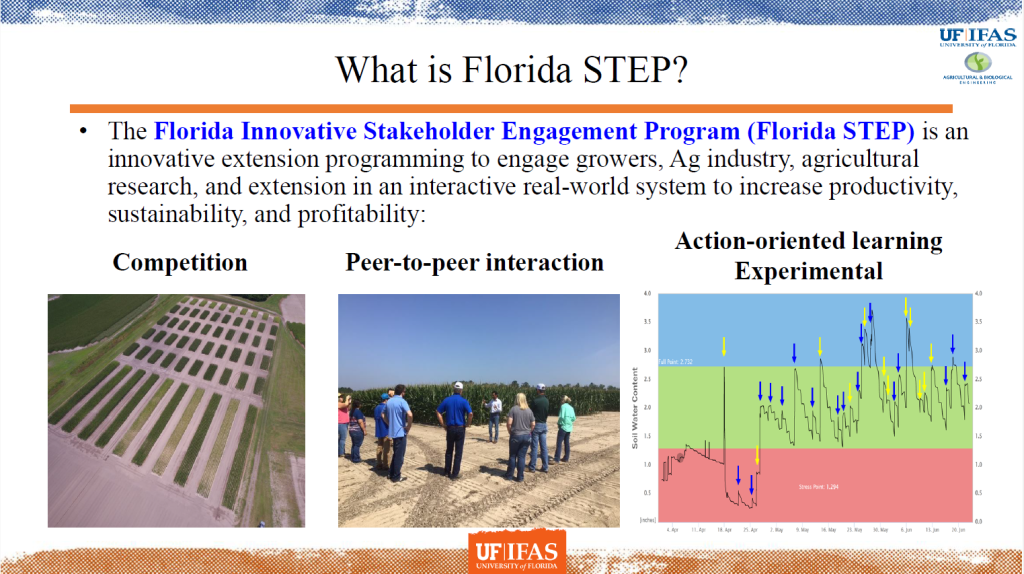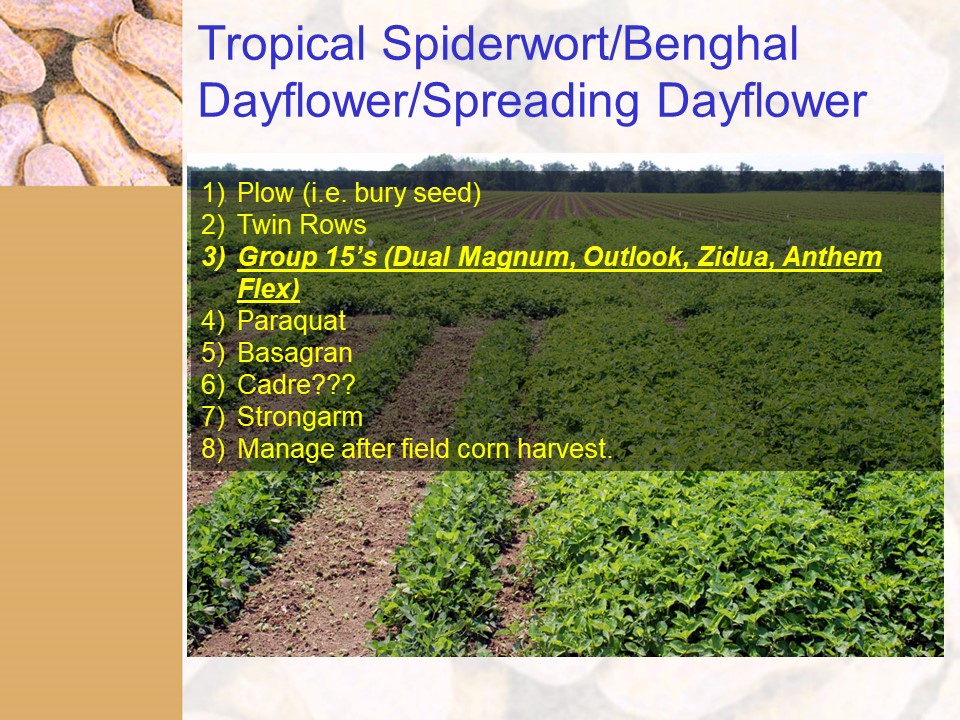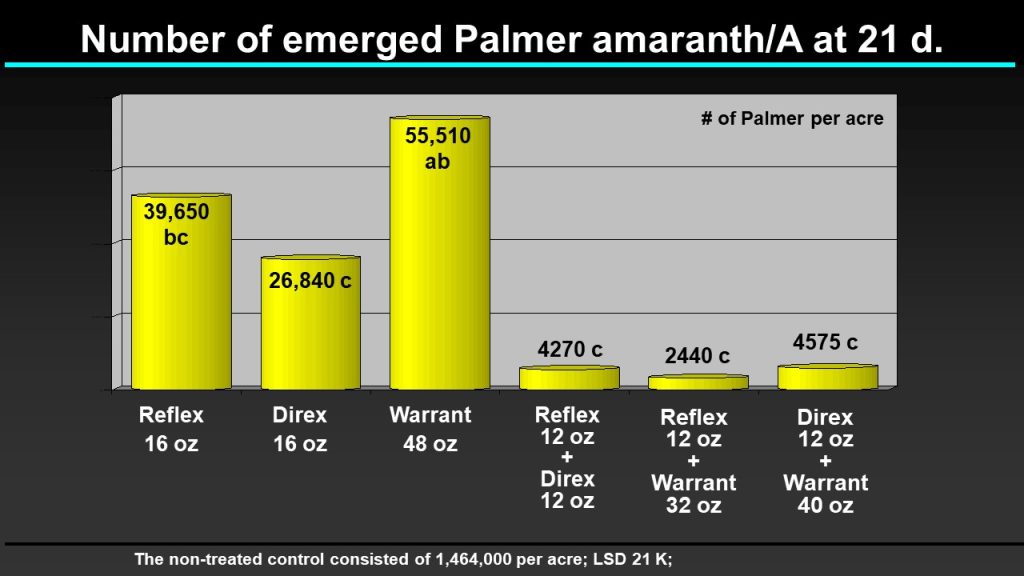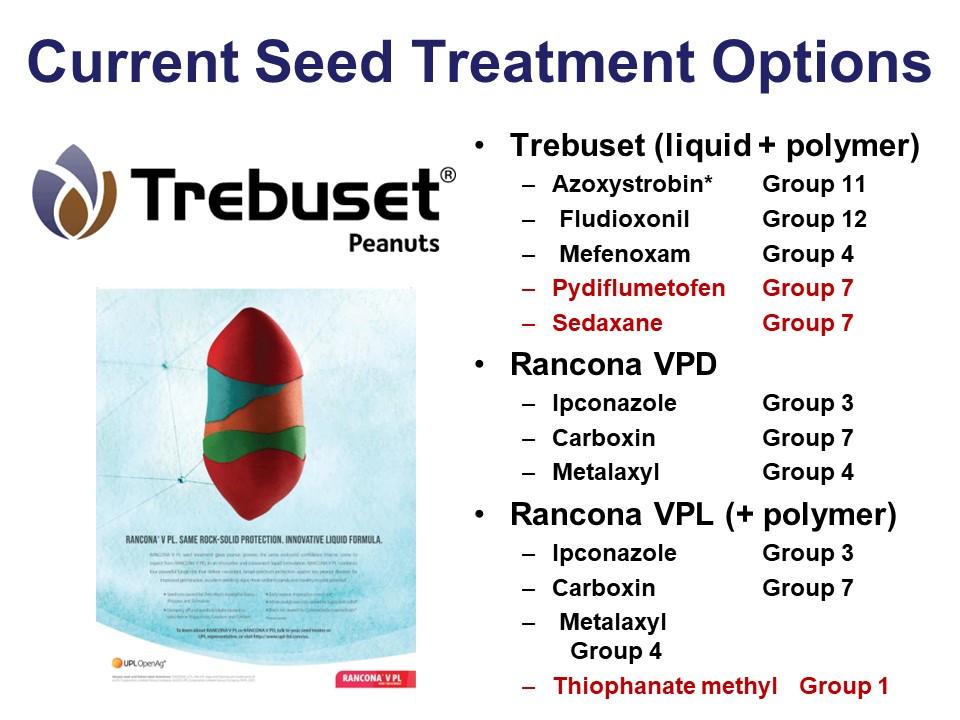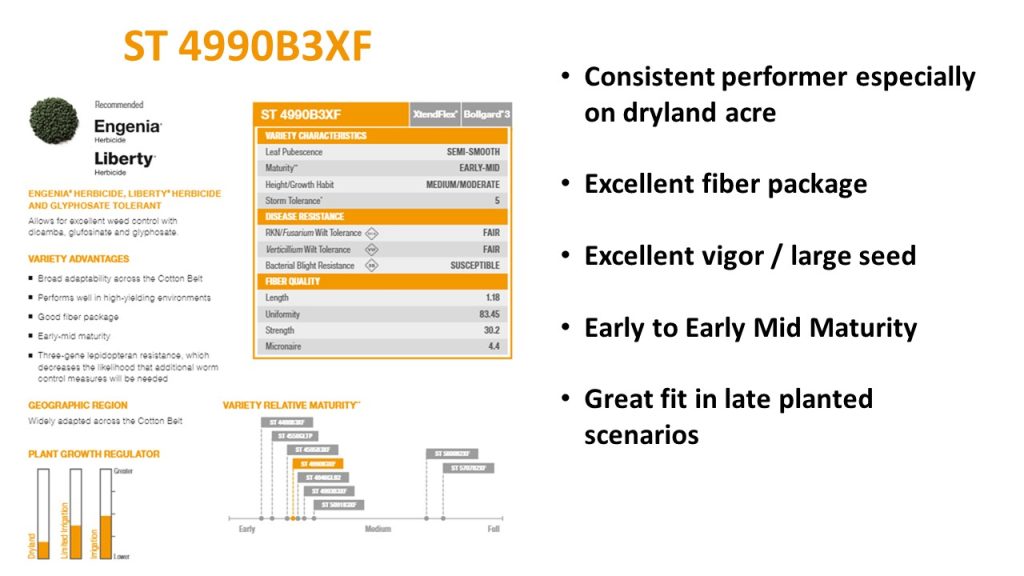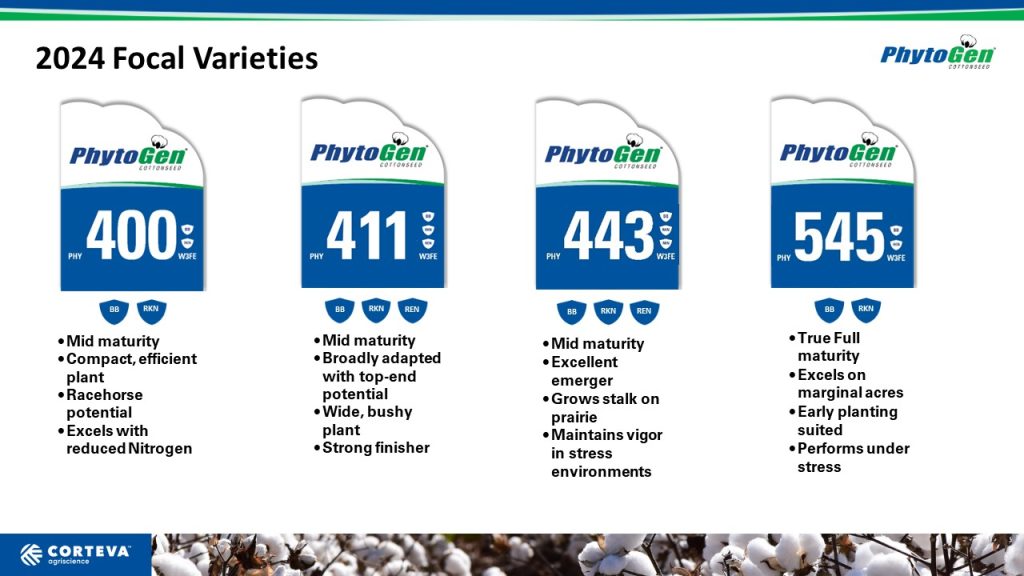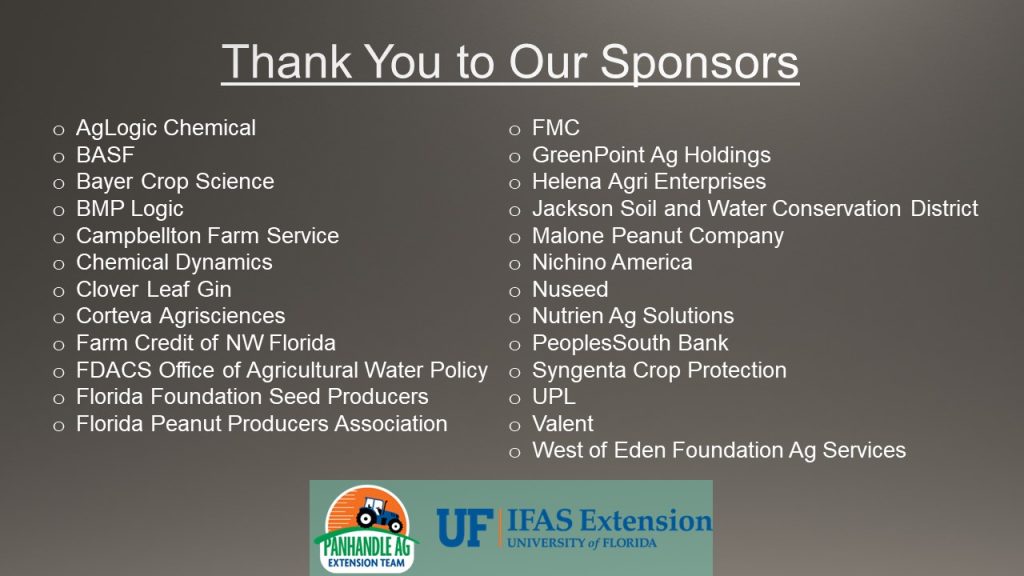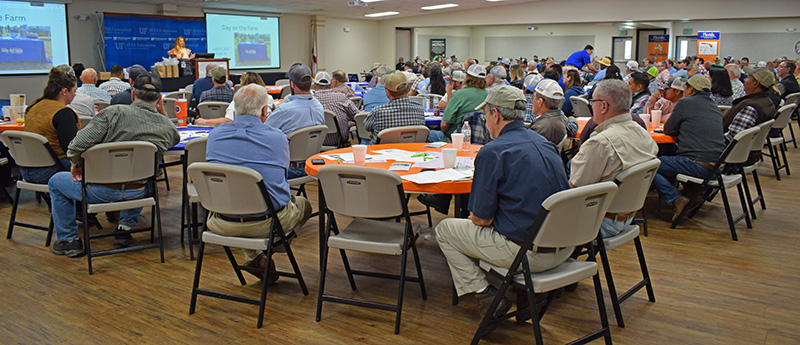
175 crop farmers, industry professionals, and extension faculty participated in the 2024 Row Crop Short Course, held March 7, in Marianna.
The 2024 Panhandle Row Crop Short Course was Thursday, March 7. The event had an incredible turnout of 175 people, just shy of last year’s record-breaking attendance. Extension Specialists from Florida and Georgia spoke to peanut and cotton farmers regarding early and mid-season management strategies for the upcoming season. Continuing education units (CEUs) were offered at the event for those with a restricted use pesticide license (Florida and Georgia), as well as for Certified Crop Advisors.
The Row Crop Short Course is regional peanut and cotton production meeting in the Panhandle that supports growers from Calhoun, Gadsden, Holmes, Jackson and Washington counties. Speakers included representatives from the Florida Peanut Producers Association, and The Cotton Board, as well as university specialists covering topics relating to varieties and pest management. The following recap provides a short summary of what was discussed by each speaker, as well as direct links to download full PDF (printable) versions of their presentations from the event.
–
Peanut Variety Selection & Replant Decisions
Dr. Barry Tillman, UF/IFAS Peanut Breeder, provided variety data from trials across Florida demonstrating trends in performance. He discussed seed availability from both corporate and indented shellers, as well as variety specific information to help steer management decisions based on factors such as planting date, disease susceptibility, seed and vine size. Another important topic discussed during his talk was replant decision making, stating that 2.5 plants/ft is a sufficient stand for adequate yields IF tomato spotted wilt is not an issue in the field.
Presentation link: Tillman – Peanut Variety Performance & Replant Decisions
–
Cotton Variety Performance & Selection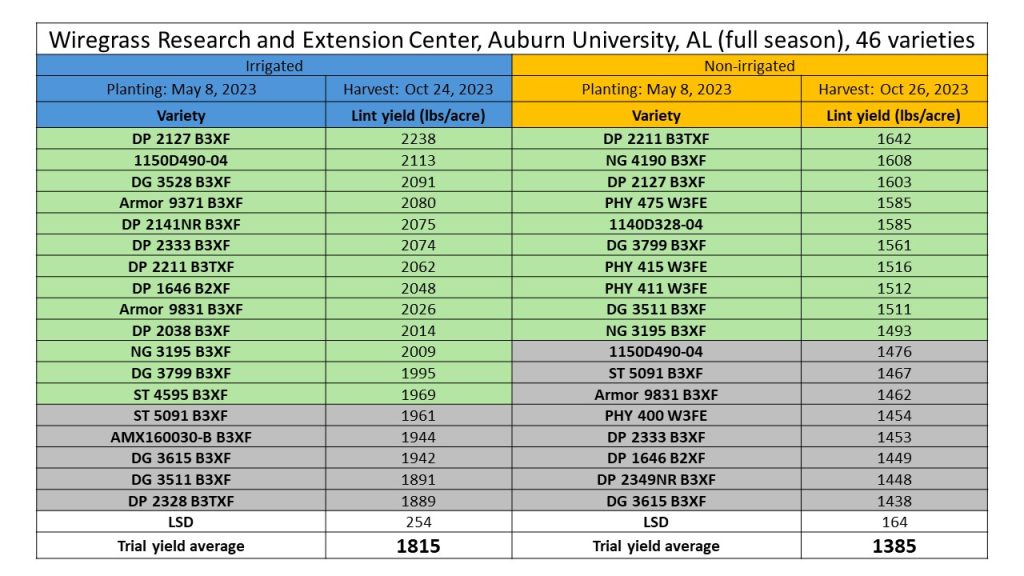
Dr. Sudeep Sidhu, UF Agronomist, presented data on the 2023 cotton variety performance from two Florida trials and the statewide data garnered from Georgia that evaluated varieties from many companies. This included early and full maturing varieties, as well as ThryvOn and nematode resistant types. The data tables provided in his presentation highlight above and below average performing varieties in both dryland and irrigated scenarios.
Presentation link: Sidhu – Cotton Variety Performance & Selection
–
Florida Peanut Producers Association Update
Brittany Peacock, Program Coordinator for the Florida Peanut Producers Association (FPPA) provided an update on the status of their research, education, and promotional efforts, along with the goals of the FPPA. She highlighted a number of events that the FPPA have participated in over the past year, and also mentioned the extended Farm Bill date of September 30th, which may even be extended into 2025. The FPPA has a Farm Bill letter that they are encouraging peanut growers to sign as a petition that will be sent to congress to convey the group’s needs. She also reminded growers of several industry related meeting dates for 2024.
Presentation link: Peacock – 2024 Florida Peanut Producers Update
–
The Cotton Board
Daniel Radford, Southeast Regional Communications Manager with The Cotton Board provided an update on The Cotton Board, activities that they are engaged in, as well as their producer outreach methods and tactics. They have monthly Cotton & Coffee webinar sessions (7:30am CST) that focus on specific parts of the cotton industry, cotton growers and stakeholders are encouraged to join in by registering at cottonboard.org/cotton-coffee.
Presentation link: Radford – The Cotton Board
–
Cotton Stakeholder Engagement Program
Dr. Vivek Sharma, UF Precision Water Management Specialist, discussed the new Cotton Stakeholder Engagement Program that he has partnered with Dr. Hardeep Singh to implement at the West Florida Research and Education Center in Jay, Florida. This program promotes Best Management Practices (BMPs) through a farm management competition focused on input use efficiency and profitability, which is being modeled after the successful Corn STEP which was implemented several years ago. Growers make all the management decisions and input them into the online web portal, the research station staff oversees their application. Competition winners will be selected at the end of the year based on the Most Profitable and Highest Input Use (efficiency), winners receive monetary compensation.
Presentation Link: Sharma – Peanut & Cotton Weed Management
–
Peanut Weed Control
Dr. Eric Prostko, UGA Weed Scientist, discussed weed management strategies in peanut. His focus included burn down options prior to planting, pre-emergence products and incorporation, weed control program options and strategies for hard to control weeds such as Florida beggarweed, hairy indigo, and wild poinsettia. Once behind in a weed control program, large weeds are very difficult to control with chemical options and efficacy tends to decrease. He also encouraged the audience to subscribe to UGA’s podcast titled All About The Pod, where UGA specialists discus currently growing conditions and questions pertaining to peanut production.
Presentation link: Prostko – Peanut Weed Control
–
Cotton Weed Control
Dr. Stanley Culpepper, UGA Weed Scientist, discussed weed management strategies in cotton. He discussed current regulations impacting the ag industry and how it is important for stakeholders to have a unified front for input concerning products and regulation. He provided data comparing Liberty vs Dicamba programs for weed control efficacy, as well as the use of tank mix applications vs a single product. Nutsedge issues in cotton is something that he has been dealing with more often recently, he talked about the use of Envoke. Other general weed control factors mentioned in his talk included the utilization of tillage, cover crop residue, and appropriate product rates.
Presentation link: Culpepper – Cotton Weed Control
–
Peanut and Cotton Disease Management
Dr. Bob Kemerait, UGA Crop Pathologist, discussed disease management in peanut and cotton. Applications timing, product performance, and modes of action were discussed. Coverage is key in a disease management program, equipment speed and rain/irrigation coverage can have major impacts. Once behind, it can be very difficult to recover with a fungicide program.
Presentation link: Kemerait – Peanut and Cotton Disease Management
–
Dicamba Stewardship Training 2024: Over-the-top Use in Cotton and Soybean
Dicamba regulation and use has been a closely followed and confusing topic for the 2024 season. Dicamba products registered for over-the-top use in cotton and soybean (XtendiMax, Engenia, and Tavium) are approved for use during the 2024 cropping season for applicators who have them or can still purchase existing stock from local retailers. Applicators are required by the state to have an annual training certification for these product’s use. Applicators using these three products on dicamba tolerant cotton or soybean are required to have their own pesticide license as there is no supervision of unlicensed applicators allowed. Florida applicators need to complete an online industry training (BASF, Bayer, Syngenta).
–
Stoneville Cotton- BASF
Mark Freeman, with Stoneville cotton discussed cotton varieties that they are recommending for 2024. Main variety lines included ST 5091B3XF, ST 4595B3XF, and ST 4990B3XF. He also talked about the new Axant Flex cotton lines that will be the first and only quad-stacked herbicide trait package in cotton. An example of this is ST 6000AXTP.
Presentation link: Freeman – Stoneville Cotton Varieties
–
PhytoGen Cotton – Corteva Agriscience
Gib Ellis, with PhytoGen cotton discussed a number of cotton varieties that they offer, including four focal varieties for 2024. He presented data from several trial locations, the closest Marianna being just north from Headland, AL.
Presentation link: Ellis – PhytoGen Cotton Varieties
–
Sponsors and Trade Show Exhibitors
These 25 sponsor organizations took part in the program’s Trade Show and made a sponsored lunch possible for not only this event, but also the upcoming UF Peanut Field Day scheduled for August 8th. We are grateful for their continued support and the services that they provide.
- 2025 Peanut Field Day Recap & Speaker Handouts - August 29, 2025
- Peanut Foliar Diseases Exploding Across Florida - August 22, 2025
- Provisional Nitrogen Fertilization Recommendation for Florida Cotton for the 2025 Season - June 20, 2025

